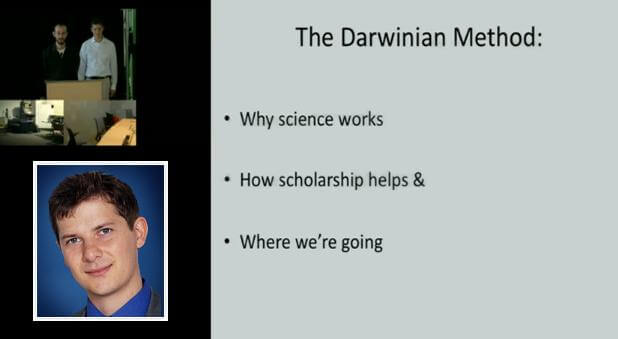
What is science and why do we trust it as much as we do? Short answer: it’s rational and empirical. For the long answer, you need Michael Vassar. Vassar is the president of the Singularity Institute and a prominent advocate for the belief that technologies may develop exponentially in the future. During the recent Open Science Summit and the even more recent Singularity Summit 2010, Vassar gave one of the most interesting and insightful presentations on the history of rational thought that I’ve seen in years, entitled the Darwinian Method. He explores the difference between scholarship and science, and the limitations of each and touches on everything from Cathedrals to Global Warming. While I wasn’t able to get a copy of the exact talk I saw, I did find an earlier version of that talk which he gave at Google. So a little less polish, but a little more raw ideas. It’s a great presentation and well worth your time. Check it out below.
Why am I asking you to sit through an hour of video that shows a tiny picture of a person presenting slides without pretty pictures? Because science is freaking amazing, and we don’t really question it enough. Not question in the sort of “evolution’s just a theory” way. No, I’m talking about trying to understand why the principles of science work so well, and how we possibly arrived at modern science. Vassar does that. He looks at the rational modes of thought we first used (philosophy, scholarship) and then sees how early science arose from it (and both conflicted and cooperated with it). And he doesn’t stop there of course. In the final few minutes Vassar goes on to think about the surprising conclusions that rationality and science may be pointing us to. That is, that we have a technological singularity ahead of us. What happens when our rational system predicts that it can’t help us rationally understand our future beyond a certain point? No one knows, but Vassar’s logic is a steady march that leads you to believe in the Singularity. Esoteric perhaps, but very cool.
[image credit: modified Google Tech Talk and Singularity Institute]



